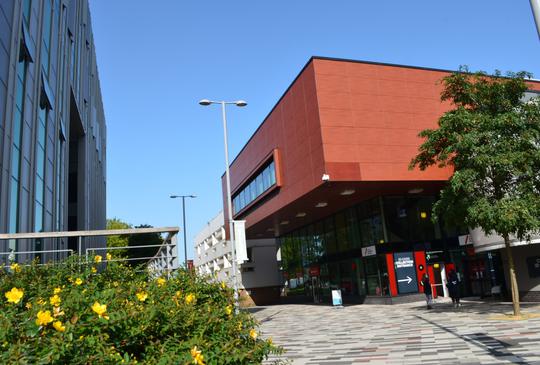
Joining the Dots: The Value of Critical Friends
One of the strengths of the IGNITION project is the range of partners we have working across the project. This diversity of local authorities, businesses and NGOs brings with it a huge breadth of knowledge and a range of insights into the impact and value of nature-based solutions (NBS) for many different stakeholders.
However, if Greater Manchester is to drive investment at scale in functional green infrastructure, this will require systemic change. This needs input, buy-in and action from local and national government, residents, property owners, business, NBS suppliers, regulators and more. Therefore, a commitment to wider collaboration is very much embedded in the IGNITION project; our communications and stakeholder engagement plan is focused on the development of an enabling environment where green infrastructure and NBS are considered a key tool in addressing the climate emergency.

To do this successfully the IGNITION project partners have taken a targeted approach to mapping and engaging stakeholders and invited input at every stage of the project. At the very start, all partners came together to identify which stakeholders would have interest and influence in the different aspects of the project. Through this process we identified some key groups that we considered integral to the success of IGNITION, including NBS suppliers, investors and financial advisors, the water sector, local authorities, land and property owners and managers, businesses, citizens, government and other innovation research projects.
Developing an engagement plan with these diverse stakeholders, we first mapped the areas of the project which had most relevance to each group. We wanted to ensure that our engagement strategy was informed by the relevant sectors, so our first step was to pull together critical friends from each sector to help shape and inform our plan.
Early in 2020, with lockdown looming, we curated a programme of critical friend virtual round tables with key sectors. Each session was tailored to the invitees, but all shared a similar framework. We actively invited constructive feedback on the IGNITION project, including process, challenges, issues, communications channels and individuals who will help ensure the success of the IGNITION project. These sessions provided us with valuable insights and have given us confidence in the structure and deliverables for the project. Although the issues discussed varied by sector, there were some key themes that came out which have also proved invaluable to the project. These included a significant interest in carbon capture, that is hard to meet in urban environments, greater clarity needed on the special purpose vehicle that will govern and deliver investment and a desire for policy change within the water industry.
The value of this approach to collaboration has helped inform the project in a myriad of ways.
- We have been able to better understand what each sectors’ motivations and drivers are around urban green space
- By working initially with critical friends, we have had more constructive criticism and identified more challenges than we would have done by going direct to the wider sector or individuals who don’t know us well
- We have identified shared themes, challenges and policy issues that we can now work in partnership to address
- We have learnt about similar or complimentary projects which will enable us to both better allocate resource and share learnings
- Each different area of the project has been adjusted and shaped in a way that means it better meets the needs, drivers and interests of our stakeholders
- We have sense-checked our engagement strategy before investing in the development of resources or communications assets
- We have started to build a multi-faceted and collaborative network that will support the development of a truly enabling environment
The timing of these round tables was particularly relevant as they were held against a backdrop of COVID-19, lockdown and the government’s response for a green recovery. Alongside lockdown, final arrangements for Brexit were also being discussed; arguably two of the biggest disruptors of our generation, both bringing unique and unchartered challenges and opportunities. The insight and reflection we gained from understanding the impact of these challenges on our stakeholders was invaluable in enabling us to revise the project plan in the face of unprecedented change.
When trying to solve wicked problems and drive systemic change, collaboration is key. By having the courage to invite constructive criticism from a range of critical friends and then acting, where appropriate, to tweak, enhance or rethink it is possible to avoid remaking old mistakes and to accelerate progress. I started this by saying that one of the key strengths of the IGNITION project is the breadth of our partnership. This is not just for the range of knowledge and skills each partner brings, but also for the many wider connections they can bring to the project. Together we can reach many more people and learn so much more than we could alone, and by joining the dots we can bring the bigger picture to life.
For more information on the IGNITION project or to find out how to get in touch with us, head over to the GMCA website.
The IGNITION Project: How We’re Getting People Switched On to Climate Change
Contributed by Jennifer Lane
Contributor Profile
Jennifer Lane is Campaign Manager for the IGNITION Project and Natural Course.



